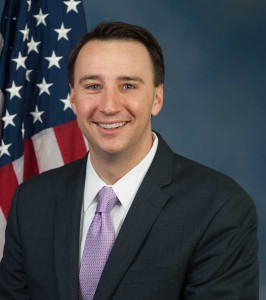By Ryan Costello, U.S. Rep., Sixth Congressional District
Creating a new locally developed heart valve, finding a personalized cure to an individual’s battle with arthritis, or even breakthroughs in the mapping of the human genome – these are medical modernizations that American scientists and researchers are developing daily. We have seen medical advancements accelerate over the past decade, but if the pace of our innovation is allowed to reach its full potential, even more can be done.
Unfortunately, outdated and bureaucratic federal drug and device approvals are discouraging groundbreaking and lifesaving innovations. As a result, we are falling behind our global competitors who are incentivizing this very innovation and encouraging greater development through more efficient and streamlined regulatory approval processes. It’s not that American scientists, researchers, and physicians are lacking creativity or a desire to explore new therapies and treatments. It’s that our government is not enabling and empowering them with the tools they need to create. Simply put, our American research potential is getting tangled in outdated regulatory laws and not keeping up with the rapid pace of innovation.
So, how do we ensure that there is not a major gap between the science of cures and the way we regulate these therapies?
The U.S. House of Representatives is working on a bipartisan initiative to promote 21st century innovation and accelerate the pace of cures and rare disease treatments in America.
Headed by the House Energy and Commerce Committee, “21st Century Cures” is a series of policy concepts that is designed to break down barriers and restore and maintain America’s leadership position in the life sciences. It will allow scientists and researchers to thrive and harness findings to empower patients.
In addition to modernizing clinical trials, 21st Century Cures incorporates and encourages greater patient perspective in the discovery, development, and delivery process of rare disease treatments and cures. It gets essential therapies, drugs, and treatments to those patients who need it the most. It encourages greater stakeholder collaboration and removes the regulatory walls that have thwarted constructive interaction and data sharing among patients, researchers, providers, and innovators. And, importantly, it increases funding for the National Institutes of Health.
Thankfully, this isn’t partisan or political issue. It’s about promoting the best minds to come together without government regulations to find modern day solutions to save lives. Treatments and cures for diseases and disorders such as Alzheimer’s and Autism (& many others) should remain a key focus for our collective generation – and government should ensure that the life sciences industry is in no way hampered in achieving breakthroughs.
Since being elected to Congress in January, I have made it a point to meet with multiple patient groups, innovators, providers, and researchers to discuss the critical needs of these communities. In April, I held a roundtable with our local life sciences industry to hear first-hand how federal regulatory policy impacts this industry not only with respect to job creation and research and development efforts but, importantly, advancements in patient health outcomes.
The 21st Century Cures initiative will not only pave the way for better and faster therapies, it will promote economic growth in our communities. We are fortunate to have a robust industry that is at the forefront of discovering breakthrough treatments and cures to improve and extend lives right here in Southeastern Pennsylvania.
I am encouraged that 21st Century Cures is working its way through the House of Representatives in bipartisan and thoughtful manner and will work diligently to pass a bipartisan bill by the end of this Congress.
Greater discovery will lead the way. I am proud to support this effort and join the coalition of scientists, doctors, and patients in promoting modern day cures.







